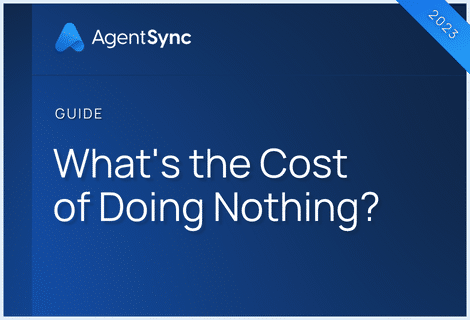

Unlicensed professionals pushing clients toward insurance contracts prompted Louisiana Insurance Commissioner Jim Donelon’s August reminder that, if you work in the insurance sales funnel, you need to be licensed.
The AgentSync team is a little keen on license compliance violations (for no reason), so we followed up with Donelon recently to get a little more information on what prompted his advisory letter, Notice 2021-05.
Insurance producer license compliance rules in Louisiana
A layperson likely understands the basic principle that if you’re not licensed, you can’t sell insurance. But what they may miss out on is that Louisiana insurance law extends beyond straightforward commission-based sales.
Unfortunately, some may think they are just being very thorough about referrals, while in reality they are in violation of the law. They aren’t necessarily being malicious. Regardless, what they’re doing puts consumers at risk, which is key in understanding what prompted the commissioner’s bulletin.
“Selling” without an insurance license
“I try not to [issue reminder notices] unnecessarily, because if you holler ‘Fire!’ too many times, people tune you out and can get harmed in the process,” said Donelon. “But agents were reporting to me that they were competing with insurance agents who were merely issuing policies after other non-insurance professionals – bankers or realtors – gathered information.”
Some background: Many loans require some degree of insurance. Think of an auto loan, a business loan, or home loan – a bank may require proof of insurance to extend a loan, and the quality of the insurance may affect the loan terms because of how well the bank trusts its assets are protected. So banks and real estate agents are good referral funnels for insurance agents. Yet, this can go too far, such as when the banker or real estate agent sees an incentive to push clients into hefty insurance, in turn overextending the consumer.
“In other words, the borrower was trained to be able to afford the note, sometimes for two policies: one for flood and one for homeowners,” said Donelon. “Sometimes the bankers were negotiating with the homeowner for what extent they could afford and then calling an agent to get a policy written.”
It’s one thing to refer people to an insurance agent or agency when you know they will need insurance. It’s another to figure out the terms of coverage and then just have an agent rubber-stamp an application. Pushing someone to get the biggest policy they can afford may make loan terms more favorable, but it also could leave the client with both a policy and a loan they can’t sustainably pay in the long term.
“More of this activity was being reported by multiple agents who were seeing the scenario play out by realtors or bankers who were not licensed as insurance agents but who were performing this negotiation, information-gathering role that really requires an insurance agent license to do under our law,” said Donelon.

Consequences to agents and agencies of selling without a license
“I don’t believe this is widespread, I haven’t heard of this activity in the time I’ve been insurance commissioner before Katrina, so it’s singular in that it’s only of late that it is happening, but I had at least three agencies – two homeowners agencies and a title writer – report this activity as happening in their markets,” Donelon said. “Three times in a short matter of months moved me to issue the letter.”
If you’re a Louisiana agent or agency, it may be worth thinking through your distribution funnel and whether your referrals are actually referring, or whether your new clients are coming over with a policy outline in hand. Because, while the state may be understanding about a banker or real estate agent’s naivete, licensed agents or agencies who aren’t doing their due diligence before binding insurance coverage could face serious repercussions through fines or loss of license.
Ultimately, the purpose of license compliance is to protect consumers. Bankers may be loan experts, and real estate agents may be absolute tops in their field, but that doesn’t qualify them to negotiate insurance coverage. Donelon reminded the public that there’s nothing standing in the way of real estate agents or bankers getting an insurance license and then negotiating coverage in a legal, ethical capacity.
“The law requiring licensing, and educational requirements for prelicensing, and continuing education to maintain your license are there for a purpose, and the purpose is to make sure you are a knowledgeable, purposeful professional, and you know how to act honorably in that role,” said Donelon. “Unlicensed individuals put the public at greater risk for bad advice or for conflicted or even fraudulent activity and input.”
Commissioner Donelon is confident the reminder and public education will be enough to put the issue to rest – often it’s ignorance and not malice that causes these situations. But, if people in these referral funnels continued to act out of bounds, he has a stern warning, echoing the close of his reminder notice:
“A producer or agent who knowingly accepts insurance business from a person who is negotiating it without a license and performing the functions of solicitation, negotiation, sale and/or making of applications is subject to regulatory action pursuant to our LRS 22:1554(A)(11).”
For more on state-specific insurance licensing and appointing content, check out our state pages. If you’d like to ensure your agents maintain proper state licenses for the appropriate lines of business, check out what AgentSync can do for you.

